Activities
Current Projects
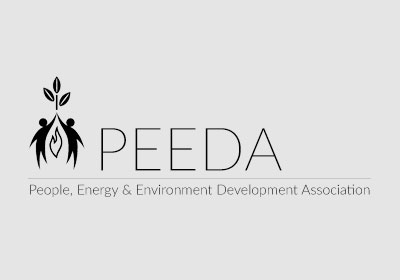
Sustainable, Holistic and Inclusive Energy Systems for Well- Being (SHINE)
Objectives of the Project: 1) Understand success, failure and the well-being impacts of energy interventions by reviewing and mapping previous energy access initiatives in sub- Saharan Africa 2) Create a holistic well being framework, utilizing transdisciplinary methodologies to transform energy system design 3) Pilot and evaluate the SHINE framework on...

Climate Resilient Communities and Sustainable Livelihood Initiatives for Pro-Poor, continuation
Due to erratic and rising rainfall and temperature patterns over the decades, climatic events in Pyuthan District have become increasingly unpredictable, leading to a higher frequency of climate-related hazards. Over the past three decades, Pyuthan has experienced a growing frequency of landslides, triggered by heavy precipitation, which has also caused...

Electric Cooking Programme for Nepal
The project aims to support households in the rural and peri-urban region with IoT- enabled induction stove. It will collect feedback from users to assess the practicality, affordability and effectiveness of the devices in real-world settings. It will the test the deployment and usage of the induction stoves and will...

Bringing clean, electric cooking to schools in Lumbini, Bagmati and Gandaki to reduce greenhouse gas emissions
The project will work closely with the respective local governments, public schools and relevant stakeholders to enable integration of electric cooking in school kitchens. High stakeholder engagement is crucial in instances where technologies are new, the perception of higher cooking costs on electricity still persists, the essentiality of flame visibility...

Implementation of the Third Phase of the WISIONS Innovation Lab in Nepal
The Innovation Lab (IL) is a transformative research approach developed by the Wuppertal Institute for Climate, Environment and Energy with an aim to integrate sustainability research into multi-stakeholder processes and catalyze systemic change for climate-friendly and resource efficient communities. The vision of Phase 3 is that local governments, MHP management...

Regional Enhancement for Climate Adaptation and Partnership (RECAP)
The project target group and community face several challenges: a lack of understanding and capacity to address climate change effectively, insufficient technical expertise for sustainable solutions, difficulties in developing project proposals that meet donor requirements, and a failure to integrate gender responsiveness. Additionally, there is a lack of networking and...
Previous Projects
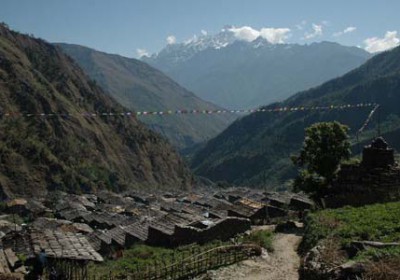
Gatlang Rural Electrification
Gatlang Rural Electrification Pre-study This project for Gatlang Community Development Society and funded by the Norwegian Himal Asia Mission was examining the options for providing rural electrification to Gatlang VDC in Rasuwa District in Nepal. Central to the options is a 200kW mini hydro project on Cheedimo Khola. This project...

System Design of an Expandable, Reconfigurable, and Integrated Renewable Energy Microgrid for Remote, Off-Grid Communities
All Renewable energy technologies provide sporadic power and thus installing a single technology type into a remote community will not ensure continuous power supply. Therefore, a hybridised renewable energy microgrid can provide a solution for long term sustainability. However, the multi -sourced hybrid mini-grid technology, having a big potential benefit...

ECO Follow Up Study
People, Energy and Environment Development Association (PEEDA) along with partners Kathmandu Alternative Power and Energy Group (KAPEG) and University of Bristol had implemented Electric Cooking Outreach (ECO) project in Solukhumbhu and South Lalitpur districts that ended back in December 2021. The research project was conducted under the financial support from...
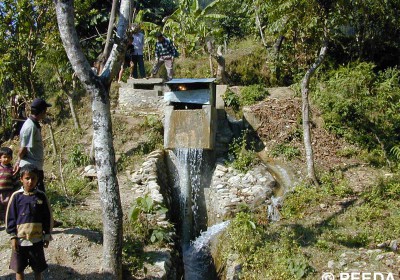
Pico Hydropower Promotion Project
Low Head Pico-Hydro Promotion Project ‘Pico-hydro’ is a term for very small hydropower units, smaller than ‘micro-hydro’ in the 100W to 5kW range. In Nepal, the most common form of pico-hydro is the ‘peltric’ set, which uses high heads and very small discharges to generate 3 to 5kW. A technology...

Detailed Feasibility Study of Low Head Turbine Sites-Two Sites in Hilly Region
People, Energy and Environment Development Association in joint venture with Oshin Power Service Pvt. Ltd are conducting detailed feasibility studies for the probable two sites in hilly region of Nepal. The low head sites should have less than 10 meters head and not include sites that use conventional micro hydro turbines...

Understanding of the energy implications at the household level of cooking entirely with electricity
The Government of Nepal has projected the rise of the electricity in the national grid from 1250 MW (2018/19) to 5820 MW by 2024, an increase of 4.6 folds. Hence transitioning to electric cooking has not only environmental, social, economic benefits but can also improve national energy security. One of...
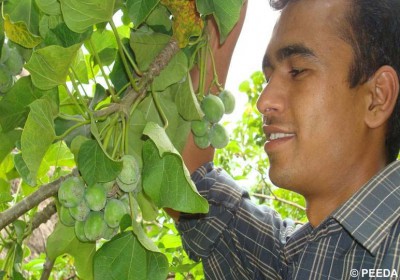
Bio-fuel Project
Project Summary This project aims to help poor villagers develop alternative ways of creating a livelihood by harvesting inedible oil bearing seeds, particularly Jatropha seeds (see photo). The project started in February 2008 in Partnership with Group of helping Hands – Nepal (SAHAS) in Okhaldhunga district in East Nepal. Seeds...
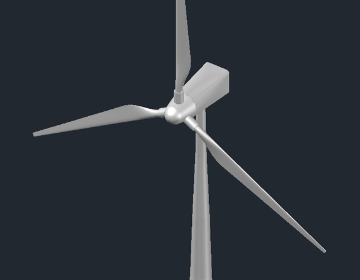
Knowledge Exchange Workshops for Locally Manufactured Small Wind Turbines Using Online Design Tools
PEEDA is one of the partner organization for the project "Online Design Tools for Locally Manufactured Small Wind Turbines". The other partner organizations are Kathmandu Alternative Power and Energy Group (KAPEG) (lead and contracting partner), Rural Electrification Research Group (RurERG) and School of the Earth ‘Nea Guinea’. The general aim of this project...
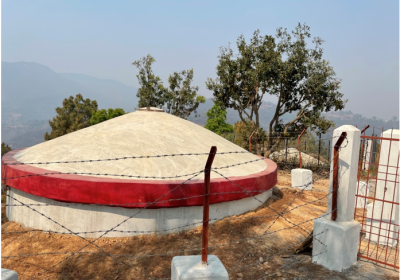
Ribdikot Drinking Water Project
The project is aimed to provide drinking water facilities to rural households in Ribdikot Rural Municipality, Palpa via the installation of water pump, civil works for necessary transmission pipeline and anchoring and storage tank conversion. The project is supported by KRIA Foundation, Norway.
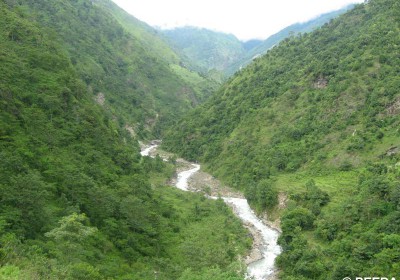
The Pro-poor Hydropower Pilot Project
BASIC CONCEPT Pro-Poor Hydropower (PPHP) is a concept by which the rural poor of Nepal are facilitated into the profitable ownership of their water resources. This is achieved through development of commercially profitable and socio-ecologically acceptable hydropower projects with the local poor gaining significant ownership of the projects. IMPLEMENTATION PHASES...
